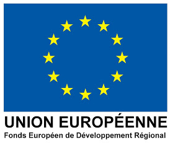
PROVEG Project

Completion date:
The project leader :

Partners:
-
AGHYLE
-
CERFRANCE Normandie Maine et ARAD
-
Normandie Université – Unité GLYCOMEV EA 4358
- NatUp
The project :
The PROVEG (PROtéines VEGétales) research project aims to evaluate and spatialize the potential of a diversity of crops that are absent or not well established in the Normandy region, and whose productions have a higher protein content than that of currently cultivated plants.
This approach is in line with the desire to contribute to the development of protein crops in order to increase their production, but also responds to the need to diversify and extend rotations. Thus, the project will evaluate the potential of a diversity of leguminous seed crops (pea, faba bean, lupin, lentil), but also that of a currently minor crop: quinoa.
PROVEG (PROtéines VEGétales) is a 2-year project, selected within the framework of the AMI Protéines Végétales Normandie 2019, which is based on the Regional Plan for plant proteins for human consumption.
Context :
Due to their protein content, several types of plants have advantages for human nutrition, including legumes, cereals and oilseeds. The role of legumes in nutrition has been recognized as a relevant source of protein as well as for other health benefits. Soybean, peanut, bean, pea, lupin, chickpea, faba bean, faba bean or lentil are currently the most important legumes for human nutrition (DeRon, 2015).
Increasing the share of legumes in cultivated areas could reduce the current protein deficit and contribute to the transition to more sustainable agricultural systems. Indeed, legumes contribute to sustainable environmental improvement due to their ability to fix nitrogen and their beneficial effects on the soil (Coba de la Pea and Pueyo, 2012; Drevon et al. 2015; Mahmood et al. 2017).
Some minor crops, such as hemp, amaranth, quinoa, buckwheat, and chia, are known to be excellent sources of protein, and their seeds in particular contain the essential amino acid lysine, which is not commonly found in cereals. Nutritional evaluations of quinoa, for example, indicate that it is a source of complete protein, minerals, vitamins, high quality oils and flavonoids. This crop maintains significant productivity in poor soils and under conditions of water stress and high salinity (Choukr-Allah et al. 2016).
Objectives:
- Evaluate and spatialize the potential of a diversity of crops that are absent or poorly established in the region
- Contribute to the development of protein crops, increase their production
- Diversification and extension of rotations
FINANCING:


CONTACT :
Dr Wassila RIAH-ANGLET – Research Officer in Soil Microbial Ecology, UniLasalle
